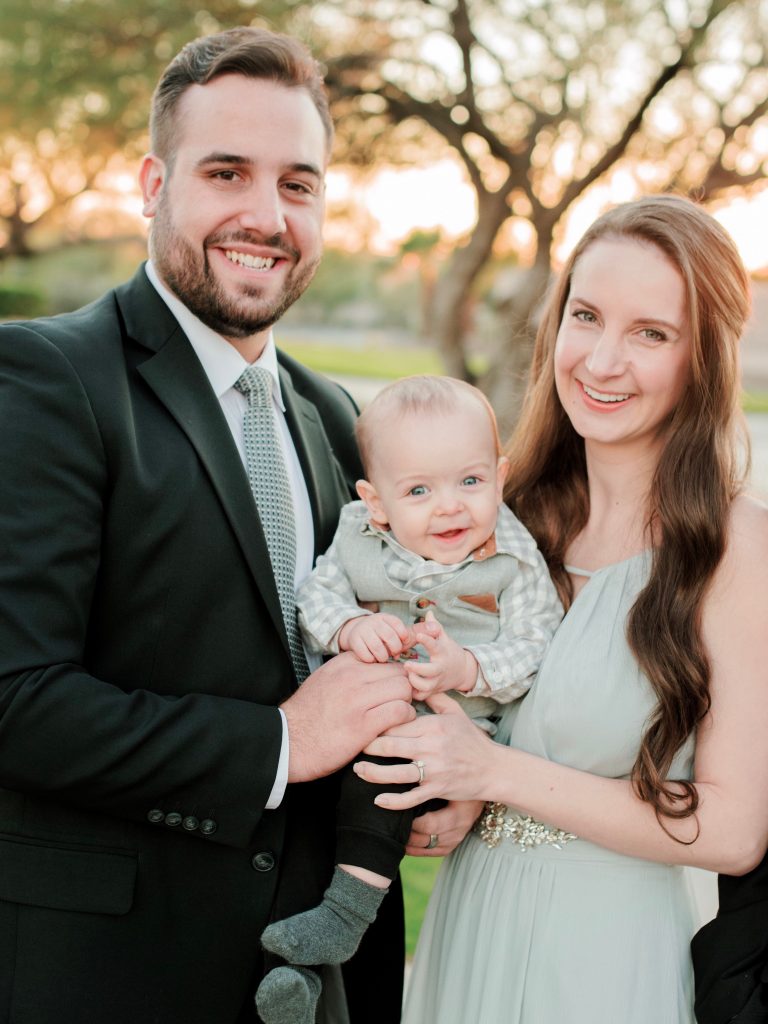Liberty Couple Looks to Open Facilities as Home for Victims of Sex Trafficking

One minute and forty seconds — that is how long it took Liberty alumna and non-profit founder Hallie Albin to find a trafficked child for sale in Lynchburg. Albin found the startling number after the validity of the trafficking problem in Lynchburg was challenged by a peer.
With the imminent need in mind, Albin and her husband Phil began a mission to offer long-term aftercare to victims of domestic minor sex trafficking — providing housing, professional counseling, equine therapy, legal assistance and advocacy, education and physical care–all free of charge.
Albin met her husband, also an LU alumnus, in 2016, a week before departing to California to work with a program for victims of trafficking. The two immediately hit it off, and despite only meeting for a few times in person and a lack of cell service on Albin’s end, they had frequent phone conversations over the camp phone while Albin was away.
One day, about a month after their first meeting, Albin’s now-husband called her and told her about a dream he had the night before.
“He said, ‘This is going to sound crazy, but I had this dream last night, and I think it was from God,’” Albin recalled. “In his dream we were married, and we had a ranch for victims of human trafficking, and he said that he thought that that’s what God was telling him that we were supposed to do together.”
“So I was like, I guess we’re getting married,” Albin laughed. “I guess that seals the deal.”
Now, four years since the initial idea and one year after the first tangible steps began, the couple’s dream is becoming a reality.
The Albins spent the past year setting the groundwork for the mission–getting approvals to become a non-profit and registered charity which granted the organization the ability to fundraise, branding the non-profit and holding mini “vision parties” to raise awareness about the need for trafficking aftercare. The next step moving forward is getting the land to build the ranch on and raising enough money to afford the down payment.
The facility will be located in a private, undisclosed location within a 30-minute radius of Lynchburg. The girls in the program, ranging from 11-17 years old, will stay in cottages that hold four girls at a time, each with their own bedroom and bathroom. There will be 12 cottages total, so up to 48 girls can stay in the program at one time — a large number for a trafficking aftercare program.
“There are only one or two facilities in the whole United States that have the capacity for that many girls,” Albin said. “With this layout we have the capacity to build more cottages and grow as we have funding, so we can have more girls at the program getting care.”
In addition to the living space provided to the girls free of charge, numerous other amenities are offered on-site to help victims acclimate to normal life after the extreme trauma they experienced.
The program’s length will vary on a case-by-case basis but will typically be around one year long.

Licensed professionals will lead the girls through counseling and therapy to work through trauma, as they also work towards academic goals while enrolled in LCA’s online program. High school juniors and seniors will also have the opportunity to dual-enroll with Liberty Online to get a kick-start on their college credits.
Set FREE will also offer equine therapy through a faith-based restoration program, Colors of Hope. This international initiative was designed by survivors of sex trafficking with the healing process of future victims in mind.
A number of benchmarks will exist to quantify a victim’s progression and readiness for discharge, and once they have passed through all of the benchmarks they will graduate from the program, according to Albin.
Set FREE differs from other aftercare facilities, as it offers long-term assistance and restoration.
“Most places that are doing this only offer emergency housing, like ‘here’s a bed for a night, now you have to find somewhere else to go,’ or short-term care which is typically less than 90 days,” Albin said. “(Victims) are not really getting any long-lasting help when they are in an aftercare facility for less than 90 days because they are not even able to get to a place where they can process their trauma or calm down enough before their time is up, and they have barely even started to make progress at that point.”
Victims will also receive family therapy to facilitate a more successful reintegration period after they graduate from the program.
Although the program will be based outside of Lynchburg, it will welcome child sex trafficking victims from all across the country.
“The need for restorative housing is so huge, that they will come from all over,” Albin said. “Victims can come from connections with law enforcement, homeland security or other government agencies. If your organization is connected with someone in the agency, they will know who to reference when they find a victim. … It’s a huge need, so there is not going to be a shortage in filling the program.”
Kayleigh Hamer is a Copy Editor. View her LinkedIn profile here.

I would love to work with them one day. I want to help with sex traffic! I’m a victim and now soon to be a liberty university Graduate with criminal Justice in criminology..